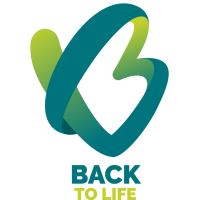Back To Life Programme
What is the Back to Life Programme?
An interdisciplinary education and exercise-based rehabilitation programme designed to help patients with back pain to restore function and quality of life. This bio-psychosocial intervention is recommended in NICE Guidance (2009) to be the best way to manage persistent back pain. The intervention aim is to train patients to become experts at understanding their persistent low back pain, to manage flare-ups in pain effectively, to set goals to improve function, to reduce reliance on analgesic medication and to engage in healthy behaviours.
Who is it for?
The programme is for patients with persistent low back pain who are struggling to function and manage their pain effectively. This could include patients who have become fearful of moving, have unhelpful beliefs about the nature of their pain or are struggling to stay at work due to their pain. A screening tool, the Startback Questionnaire, can help to identify patients who are most likely to benefit from this intervention.
What does a programme look like?
The programmes are led by a doctor, a physiotherapist and a pain counsellor. Participation is usually in small groups and includes physical exercise sessions, education regarding the biology of pain, management of flare-ups, graded activity and goal setting. Patients are taught relaxation skills and introduced to the concepts of visualisation and Mindfulness to help with rehabilitation. On a case-by-case basis, patients are helped to reduce their reliance and use of analgesic medication.
How often do patients need to attend?
The programme runs once a week on a Monday from 3:30pm - 5:30pm and continues over a period of four weeks. Patients then attend a follow-up session four weeks later on a Wednesday afternoon. Patients can be seen on a one-to-one basis if they are unable to commit to a group programme.
How do I refer?
It is recommended that GPs make a direct referral to the Back to Life Programme by letter. The letter should include a short synopsis of the patients back pain history and any recent investigations or treatments are detailed.
Benefits to patients
Through careful evidence-based assessment screening and treatment, the Birmingham Functional Restoration service can train patients with persistent back pain to become experts at managing their persistent pain and improving their function and quality of life. The NICE guidance states that a “key focus is helping people with persistent non-specific low back pain to self-manage their condition”.
Read a paper evaulating the success of the programme here
Rogers D, Nightingale P, Gardner A.
A 12‐h combined physical and psychological treatment
programme for patientswith persistent back pain. Musculoskeletal
Care. 2018;1–4. https://doi.org/10.1002/msc.1235
Referral Inclusion Criteria
-
Adults with persistent regional pain of greater than 12 weeks duration
-
At work, either paid or voluntary but struggling to maintain responsibilities
b. Off work, but job remains open
c. Not employed but actively seeking to improve function and quality of life
-
Not responded to routine primary care management such as GP advice, medication, exercises
-
Patient appearing motivated to help themselves to get better
-
Modifiable psychosocial factors impacting on their ability to recover
-
May have moderate or high-risk StartBack Score
Referral Exclusion criteria
- Serious spinal pathology such as tumours, infection, cauda equina signs
- Significant motor radiculopathy and signs of nerve root compromise requiring surgery
- Widespread multi-joint pain
- No other open episodes of care for the same condition
- Rheumatological conditions
- Communication barriers which would prevent ability to follow cognitive component of program
- Other medical problems which would prevent involvement in physical exercise program such as unstable cardiac conditions, significant respiratory problems, poorly managed diabetes
